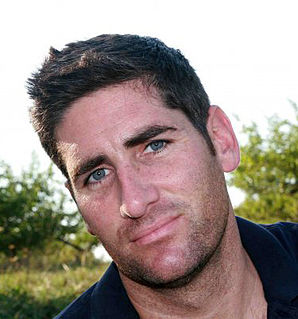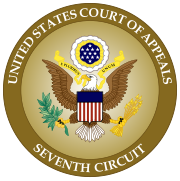
The Boy Scouts of America is one of the largest scouting organizations and one of the largest youth organizations in the United States, with about 1.2 million youth participants. The BSA was founded in 1910, and since then, about 110 million Americans have participated in BSA programs. BSA is part of the international Scout Movement and became a founding member organization of the World Organization of the Scout Movement in 1922.
Boy Scouts of America et al. v. Dale, 530 U.S. 640 (2000), was a landmark decision of the US Supreme Court, decided on June 28, 2000, that held that the constitutional right to freedom of association allowed the Boy Scouts of America (BSA) to exclude a homosexual person from membership in spite of a state law requiring equal treatment of homosexuals in public accommodations. More generally, the court ruled that a private organization such as the BSA may exclude a person from membership when "the presence of that person affects in a significant way the group's ability to advocate public or private viewpoints". In a five to four decision, the Supreme Court ruled that opposition to homosexuality is part of BSA's "expressive message" and that allowing homosexuals as adult leaders would interfere with that message.

Cub Scouts, Cubs or Wolf Cubs are programs associated with Scouting for young children usually between 7 and 12, depending on the organization to which they belong. A participant in the program is called a Cub. A group of Cubs is called a 'Pack'.

Cub Scouting is part of the Scouting program of the Boy Scouts of America (BSA), available to boys and girls from kindergarten through fifth grade, or 5 to 10 years of age and their families. Its membership is the largest of the five main BSA divisions. Cub Scouting is part of the worldwide Scouting movement and aims to promote character development, citizenship training, personal fitness, and leadership.

A variety of religious emblems programs are used by the Boy Scouts of America (BSA) to encourage youth to learn about their faith and to recognize adults who provide significant service to youth in a religious environment. These religious programs are created, administered and awarded by the various religious groups, not the BSA, but each program must be recognized by the BSA.

Edith Hollan Jones is a United States Circuit Judge and the former Chief Judge of the United States Court of Appeals for the Fifth Circuit.

Diane Schwerm Sykes is an American jurist and lawyer who serves as the chief judge of the U.S. Court of Appeals for the Seventh Circuit. She served as a justice of the Wisconsin Supreme Court from 1999 to 2004.
The Boy Scouts of America (BSA), one of the largest private youth organizations in the United States, has policies which prohibit those who are not willing to subscribe to the BSA's Declaration of Religious Principle, which is usually interpreted as banning atheists, and, until January 2014, prohibited all "known or avowed homosexuals", from membership in its Scouting program. The ban on adults who are "open or avowed homosexuals" from leadership positions was lifted in July 2015. Prior to these policy changes, BSA had denied or revoked membership status or leadership positions for violation of these foundational principles. The BSA had contended that its policies were essential in its mission to instill in young people the values of the Scout Promise, or Oath, and Scout Law.

The World Scout Emblem is the emblem of the World Organization of the Scout Movement and is worn by Scouts and Scouters around the world to indicate their membership. Each national Scout organization determines the manner in which the emblem is worn.
Randall v. Orange County Council, 17 Cal.4th 736, 952 P.2d 261, 72 Cal.Rptr.2d 453 (1998), was a case before the Supreme Court of California that established that groups such as the Boy Scouts of America are not considered "business establishments" as used in the state's Unruh Civil Rights Act and could not be subject to its provisions. Its companion case was Curran v. Mount Diablo Council of the Boy Scouts of America, 17 Cal.4th 670, 952 P.2d 218, 72 Cal.Rptr.2d 410 (1998).

Barnes-Wallace v. Boy Scouts of America was a case involving the City of San Diego's relationship with the Boy Scouts of America.
Evans v. Berkeley was a court case which upheld the right of governmental entities in California to withhold support from non-profit organizations that practice discrimination on the basis of sexual orientation.

Milan Dale Smith Jr. is an American attorney and jurist serving as a United States Circuit Judge of the United States Court of Appeals for the Ninth Circuit. Smith's brother, Gordon H. Smith, was a Republican U.S. Senator from 1997 to 2009.

A Scout troop is a term adopted into use with Boy Scouts, Girl Scouts and the Scout Movement to describe their basic units. The term troop echoes a group of mounted scouts in the military or an expedition and follows the terms cavalry, mounted infantry and mounted police use for organizational units.

Jerry Edwin Smith is an American attorney and jurist serving as a United States Circuit Judge of the United States Court of Appeals for the Fifth Circuit.

Wrenn v. Boy Scouts of America, No. 3:03-cv-04057, was a case before the United States District Court for the Northern District of California; Wrenn asked for the cancellation of federal trademark registrations of the Boy Scouts of America.

Cradle of Liberty Council, Inc., Boy Scouts of America, v. City of Philadelphia also known as Cradle of Liberty Council v. City of Philadelphia, [2:08-cv-02429RB] is a U.S. Court case involving the Cradle of Liberty Council versus the City of Philadelphia. The case was filed on May 23, 2008, in the United States District Court for the Eastern District of Pennsylvania. Judge Ronald L. Buckwalter presided over the case. The Boy Scouts were represented by Drinker Biddle & Reath. The case ended with the court ruling in favor of the Boy Scouts of America. The Cradle of Liberty Council Council is also entitled to collect $877,000 of legal costs from the city's unlawful action.
Fred Turner Martin was an American professional baseball pitcher, coach, manager and scout. Born in Williams, Oklahoma, Martin threw and batted right-handed, stood 6 feet 1 inch (185 cm) tall and weighed 185 pounds (84 kg) during his active playing career.
Yeaw v. Boy Scouts of America was a high-profile case filed in 1997 before the Supreme Court of California to determine whether the Boy Scouts of America is a business establishment within the meaning of the Unruh Civil Rights Act or has the right to exclude girls from membership.

James Dale is an American gay rights activist. He is best known for his role in Boy Scouts of America v. Dale, the landmark US Supreme Court case that challenged the Boy Scouts of America (BSA) policy of excluding homosexuals from being scout leaders.














